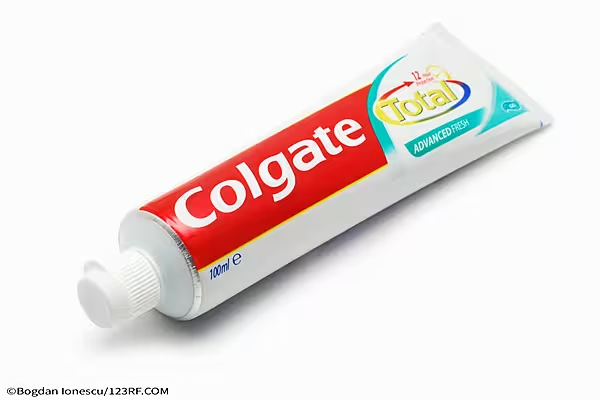Nelson Peltz’s decision to seek just one Procter & Gamble Co. board seat may soon prove to be brilliant gamesmanship that turned the tables on the consumer goods giant.
P&G, seeing that compromise at this point would be viewed as capitulation, isn’t giving any ground before its shareholders vote, though.
Peltz and his Trian Fund Management have momentum in their corner heading into P&G’s annual general meeting Tuesday in Cincinnati. The top three shareholder advisory firms - Glass Lewis & Co., Institutional Shareholder Services Inc. and Egan-Jones Ratings Co. - have thrown their support behind the billionaire’s play for a board seat.
Still, proxy battles are never a sure thing, as Peltz well knows.
“I don’t know that it’s a done deal. It’s very hard to say,” said Morningstar Inc. analyst Erin Lash. “There is a pool of their investor base that draws from and has loyalty to Cincinnati.”
The timing of Peltz’s pitch was intriguing given the company had embarked on a turnaround in 2014, Lash said.
“We believe P&G is taking prudent steps to right its ship, although we’ve long held these investments would take time to yield improvement,” Lash said.
Representatives of Trian and P&G declined to comment.
The vote comes just as Trian has made inroads at another of its large US targets, securing a seat on the board of industrial giant General Electric Co., where it’s long campaigned for an overhaul.
Ed Garden, Trian’s chief investment officer and a founding partner, will replace Robert Lane on GE’s board, the Boston-based company said Monday.
‘Why Not?’
Limiting the fight at P&G to one board seat appeared to resonate with the shareholder advisory firms, which have touted Peltz’s experience on consumer company boards including Mondelez International Inc., H.J. Heinz and Wendy’s Co. Pushing for a slate of candidates would have been a harder sell given P&G’s improving fortunes. Perhaps most cleverly, Peltz’s strategy has forced the company to answer the question “Why not?”
“Trian presents a compelling case that a limited degree of boardroom change would be beneficial,” ISS said in its September 29 report recommending shareholders vote for Peltz. “The addition of one well-qualified nominee, who holds a large economic stake, appears likely to have benefits that outweigh the potential risks.”
Peltz has even softened the sell a little more by saying he would seek to immediately expand the board to reappoint the incumbent director he would replace.
Peltz launched his campaign in July after disclosing a $3.5 billion position. Trian released a 93-page white paper in September calling for P&G to reorganise into three largely autonomous operations: a beauty, grooming and health-care business; a fabric and home-care division; and a unit focused on baby, feminine and family-care products. Each would have regional leaders with full control over their operations, instead of the bureaucratic structure that Peltz claims is in place now.
Flawed, Outdated
P&G has spent millions of dollars crisscrossing the country to keep Peltz off the board. Calling his views on the company “flawed” and “outdated,” P&G has said the Trian founding partner would bring little value as a director.
Even with the advisory firms siding with Peltz, there’s no certainty as to the outcome of the shareholder vote. Out of 81 proxy fights so far this year, dissidents have won only 12, or about 15%, according to data from FactSet.
The last time Peltz had the wind at his back heading into a proxy vote, he lost. Both Glass Lewis and ISS supported Trian’s 2015 bid for four seats on DuPont Co.’s board. Peltz argued the chemical maker needed to cut costs, better focus its spending on research, and consider breaking itself up. The company, then led by Chief Executive Officer Ellen Kullman, fended him off by a narrow margin.
Peltz has said throughout his P&G campaign that he doesn’t know how to spell the word “lose” and that he considered his DuPont effort a win because later that year Kullman stepped down and the company agreed to merge with Dow Chemical Co. Trian, with other activist investors including Dan Loeb’s Third Point, had an active hand in how the combined company divided up its businesses last month.
‘Uphill Battle’
P&G is only Peltz’s third proxy fight since he co-founded Trian in 2005. He won the two seats on the H.J. Heinz board in 2006 in his first proxy fight at Trian and remained on the board until 2013. Five former directors at the ketchup maker - now part of Kraft Heinz Co. - threw their support behind Peltz’s P&G fight, signing a joint letter saying he had been a “valued member” of their board.
“I generally feel like it’s an uphill battle for Trian,” said Kevin Grundy, a Jefferies analyst in New York.
P&G’s claim that its results have improved has some merit, Grundy said. On the flip side, the board is the same one that oversaw earlier management and strategic missteps, he said, adding that an experienced investor on the board could help the company.
“There is some skepticism among some in the investment community that they do deserve the benefit of the doubt,” he said.
“Even if he loses, I don’t think he goes away; that’s not his MO,” said Grundy, adding investors would still win because Peltz will hold the board accountable. “From Procter’s perspective, I think they’ll feel greater urgency to deliver.”
News by Bloomberg, edited by ESM. Click subscribe to sign up to ESM: The European Supermarket Magazine.














